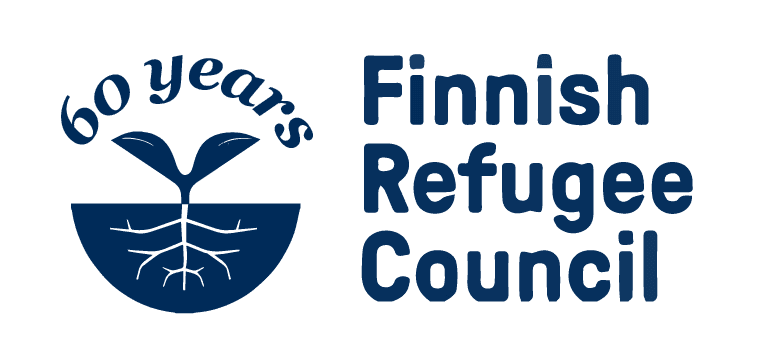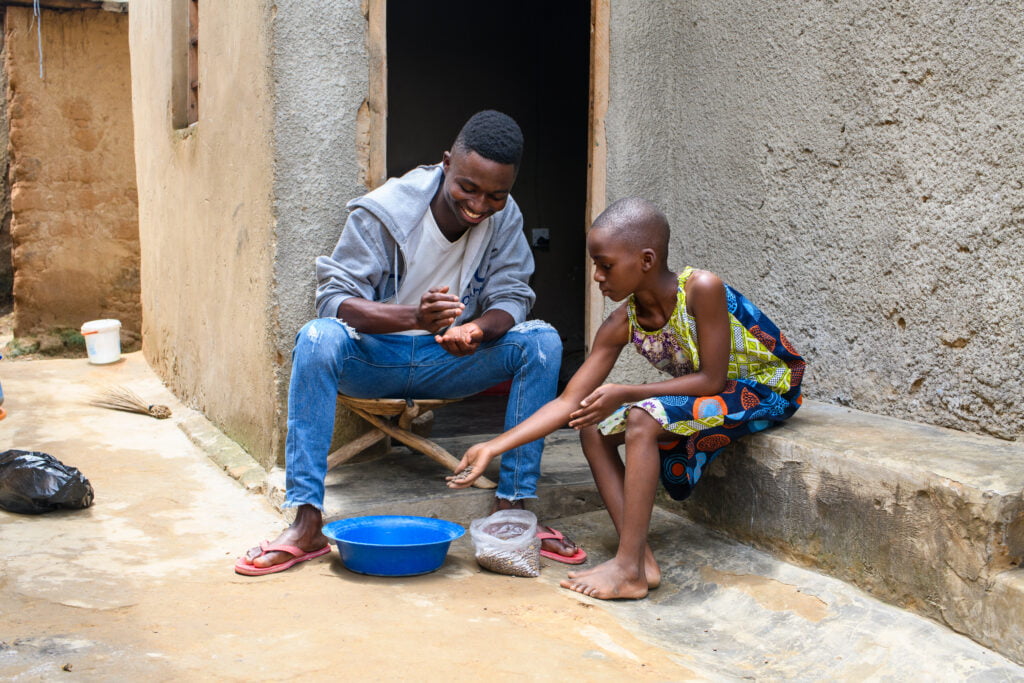SUSTAINABLE DEVELOPMENT GOALS
In 2015, United Nations Member States committed to new Sustainable Development Goals (SDGs). The SDGs guide the adoption of sustainable development in 2016–2030. Agenda 2030 brings together international action programs on human development and environmental and climate issues. The SDGs are an urgent call to create a world where no one is left behind.
The Sustainable Development Goals provide tools to end extreme poverty and other deprivations while ensuring social and economic well-being in an environmentally sustainable way. The SDGs recognize that human well-being and planetary prosperity go hand-in-hand. There are a total of 17 main goals and 169 sub-targets.
Read more about the Sustainable Development Goals on the UN website.
The SDG targets or the global indicators do not specifically address refugees or forced displacement. This had an unintended consequence of lowering the visibility of some of the most vulnerable populations in the Agenda 2030. The United Nations High Commissioner for Refugees (UNHCR), together with other operators, have been advocating to improve the identification and inclusion of forced displacement in SDG targets and development indicators.
Finnish Refugee Council is committed to support the realization of the Sustainable Development Goals both in Finland and abroad. Through our action, we do our part to ensure that refugees and migrants all over the globe are considered in the implementation of Agenda 30 goals.
The SDGs guiding Finnish Refugee Council’s work and activities
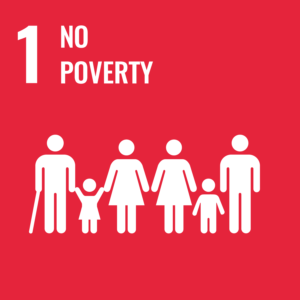
SDG 1. End poverty in all its forms everywhere
Many people who have fled their homes live in extreme poverty. More than 85 percent of the world’s displaced population live in developing countries in the Global South. Forcibly displaced people often lack important basic skills such as literacy and numeracy. In addition, they are often excluded from basic services, such as healthcare.
In addition to displaced people, the host communities also need support. The arrival of newcomers increases the pressure on basic services and infrastructure, which is particularly challenging for developing countries of low-income.
Target 1.1 By 2030, eradicate extreme poverty for all people everywhere, currently measured as people living on less than $1.25 a day.
Target 1.4 By 2030, ensure that all, in particular the poor and the vulnerable, have equal rights to economic resources, as well as access to basic services, ownership and control over land and other forms of property, natural resources, appropriate technology and financial services, including microfinance.
- FRC’s development cooperation aims to increase self-sufficiency and resilience of refugees and host communities through education. Strengthening the access to education and livelihood is crucial step for ending poverty. In addition, the FRC’s Saving and Loan Groups help those who do not have access to other financial services. Literacy and numeracy skills enable the use of digital devices and services, such as mobile transfers.
Target 1.5 By 2030, build the resilience of the poor and those in vulnerable situations and reduce their exposure and vulnerability to climate-related extreme events and other economic, social and environmental disasters.
- Finnish Refugee Council works with vulnerable groups of people and on the interfaces of conflicts. As a result of radical changes in the environment, forced movements and displacement will only intensify in the following decades. Climate emergency is also aggravating other drivers of displacement — worsening poverty, food insecurity, water shortages and access to other resources. Protection and assistance must be provided more widely and effectively to those who have been forced to flee as a result of climate change. FRC supports clime adaptation of the refugees by strengthening their resilience with new skills and knowledge, and with e.g., climate smart agriculture and tree planting.
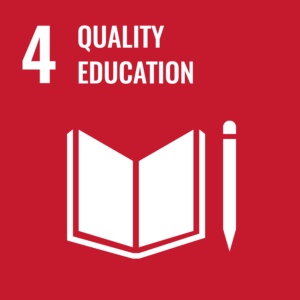
SDG 4. Ensure inclusive and equitable quality education and promote lifelong learning opportunities for all
In 2018, there were approximately 773 million illiterate adults worldwide. Two-thirds of illiterate adults are women. The educational path for displaced people is often interrupted as early as childhood, and opportunities to continue their studies are rarely available. More than half of the school-age refugee children do not receive education. Only 3 per cent of refugee students are enrolled in higher education.
Access to education has significant effects at the individual level, but the benefits of education also radiate widely to society. Educated mothers and their children are healthier, educated adults are better employed. Education helps break the cycle of intergenerational poverty and increases equality.
Target 4.4 By 2030, substantially increase the number of youth and adults who have relevant skills, including technical and vocational skills, for employment, decent jobs and entrepreneurship.
- FRC strengthens vocational training and employment opportunities, especially for refugees and marginalized young people in conflict prone areas in Myanmar and Ethiopia.
Target 4.5 By 2030, eliminate gender disparities in education and ensure equal access to all levels of education and vocational training for the vulnerable, including persons with disabilities, indigenous peoples and children in vulnerable situations.
- Finnish Refugee Council offers equal learning opportunities for everyone – including women, youth and particularly vulnerable groups such as people with disabilities. Our trainings are easily accessible, and we consider people with special needs in teaching and designing learning materials.
Target 4.6 By 2030, ensure that all youth and a substantial proportion of adults, both men and women, achieve literacy and numeracy.
- Enabling education for refugees and members of host communities has been a key part of Finnish Refugee Councils mission for decades. Our projects abroad focus on adult education, such as functional literacy, numeracy and language training.
Target 4.7 By 2030, ensure that all learners acquire the knowledge and skills needed to promote sustainable development through education for sustainable development and sustainable lifestyles, human rights, gender equality, promotion of a culture of peace and non-violence and appreciation of cultural diversity.
- Human rights, sustainable practices, conflict management skills and equality are integrated into all our educational activities.
Read more about the FRCs educational projects in Uganda, Ethiopia and Myanmar.
In addition, the FRC programs has links to the following two SDGs through training contents:
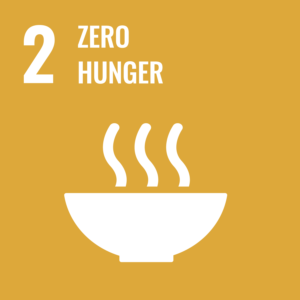
SDG 2. End hunger, achieve food security and improved nutrition and promote sustainable agriculture
- FRC supports access to better nutrition and climate smart agriculture to strengthen refugees food security. We strengthen food security through our work especially in Uganda.
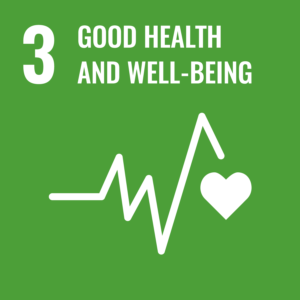
SDG 3. Ensure healthy lives and promote well-being for all at all ages
- Health care, disease prevention and forms of home care are a significant part of FRC’s educational activities abroad. During the COVID-19 pandemic, FRC has been providing counseling in Finland to ensure that appropriate health education reaches people with different backgrounds and native languages.

SDG 5. Achieve gender equality and empower all women and girls
Gender limits the opportunities of countless girls and women in all areas of society and exposes them to violence and exploitation. Inequality affects women’s well-being and prevents women from fully participating in society. Refugee women are particularly vulnerable, as violence against women is common in conflict-affected areas and it is used as a tool of warfare. Illiteracy is widespread among displaced and refugee women, which significantly limits the fulfillment of their rights.
Target 5.2 Eliminate all forms of violence against all women and girls in the public and private spheres, including trafficking and sexual and other types of exploitation.
- FRC supports the prevention of violence against women and support for its victims by providing them with services, such as legal aid, psychosocial support, 24/7 Help Line and shelters. We raise communities ’awareness of gender-based violence through education.
Target 5.5 Ensure women’s full and effective participation and equal opportunities for leadership at all levels of decision-making in political, economic and public life.
- FRC seeks to ensure that humanitarian work and development cooperation supports refugee women and girls, and that the protection, empowerment and leadership of women and girls are strengthened. We are improving women’s participation through education and building livelihoods, as literacy is the basis for equal participation. Women’s capacity building encourages them to take an active part in decision-making and conflict resolution. Group leadership skills are also strengthened in the FRC’s Saving and Loan Groups, where majority of participants are women.
Read more about our work against gender-based violence in Myanmar.

SDG 8. Promote sustained, inclusive and sustainable economic growth, full and productive employment and decent work for all
After fleeing war, persecution or other disasters, one of the most effective ways people can rebuild their lives is through the opportunity to work and earn a living. However, displaced people’s access to livelihoods is often scarce. Most refugees have no access to financial services, which limits their capacity to engage in sustainable livelihoods.
Target 8.3 Promote development-oriented policies that support productive activities, decent job creation, entrepreneurship, creativity and innovation, and encourage the formalization and growth of micro-, small- and medium-sized enterprises, including through access to financial services.
Target 8.5 By 2030, achieve full and productive employment and decent work for all women and men, including for young people and persons with disabilities, and equal pay for work of equal value.
Target 8.6 By 2020, substantially reduce the proportion of youth not in employment, education or training.
- FRC’s projects promote inclusive economic growth, community recovery and household resilience by improving refugees’ access to education and sustainable livelihoods. Sustainable economic growth is linked to education – literacy, numeracy, financial literacy, entrepreneurship and vocational training create grassroots opportunities for building the future. Additionally, FRC provides low-cost financial services and saving groups for refugees and members of hosting communities.
- In Finland, we work to ensure that education and employment opportunities are equal for all. Our goal is to support creating sustainable employment and diverse work communities. FRC’s domestic operations include Sauma project, which brings together employers and immigrant jobseekers. In May 2021, we launch a new project to prevent labor exploitation in Finland.

SDG 10. Reduce inequality within and among countries
Target 10.2 By 2030, empower and promote the social, economic and political inclusion of all, irrespective of age, sex, disability, race, ethnicity, origin, religion or economic or other status.
- The mission of FRC in Finland and abroad is to support the rights of refugees and migrants, and their equal participation in societies. We actively work to build an equal society for all by providing support, networks, information and education to both refugees and host communities.
Target 10.7 Facilitate orderly, safe, regular and responsible migration and mobility of people, including through the implementation of planned and well-managed migration policies.
- FRC advocates for strengthening safe and legal migration routes for refugees and migrants. We advocate for both national and international migration policies and practices being implemented in a way that respects universal human rights. Providing effective and successful resettlement and integration is beneficial for both the refugees and the receiving country and local host community.
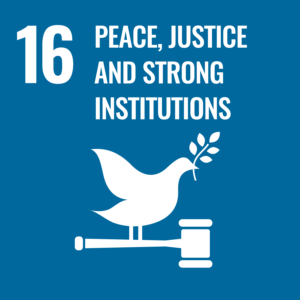
SDG 16. Promote peaceful and inclusive societies for sustainable development, provide access to justice for all and build effective, accountable and inclusive institutions
As democratic deficit is often one of the root causes of conflicts, development at both the individual and societal levels is essential for conflict resolution and the recovery and safety of citizens.
The rights of refugees have been protected by international agreements, such as the Geneva Convention, but much remains to be done to make these rights a reality. Those who have been forced to flee are always in a vulnerable position, as they do not enjoy the protection offered by their own state. Access to legal services is often impossible for financial, social and practical reasons. During the last decade, the rights of asylum seekers have been restricted and legal aid has been weakened in Finland.
Target 16.3 Promote the rule of law at the national and international levels and ensure equal access to justice for all.
- FRC, with other operators in Finland and internationally, is working to improve the legal security of asylum seekers, refugees and other displaced people. We defend the undocumented and stateless immigrants’ rights to basic services.
Target 16.9 By 2030, provide legal identity for all, including birth registration.
- Registration at birth gives the child proof of legal identity, and thereby the opportunity to exercise rights and access to services. Nevertheless, globally there are 166 million unregistered children. Displaced children and children born in refugee camps are in particularly vulnerable position. A legal identity is vital to ensuring that displaced people receive adequate protection and assistance.
Target 16.7 Ensure responsive, inclusive, participatory and representative decision-making at all levels.
- FRC’s strengthens the societies democracy with various ways. Education has the potential to serve as a tool for building and preserving peace and provides pathways for sustainable reconstruction in post-conflict situations. Education improves people’s ability to participate in decision-making processes. FRC advocates better consideration of refugees and migrants at local and international decision-making and legislation.
